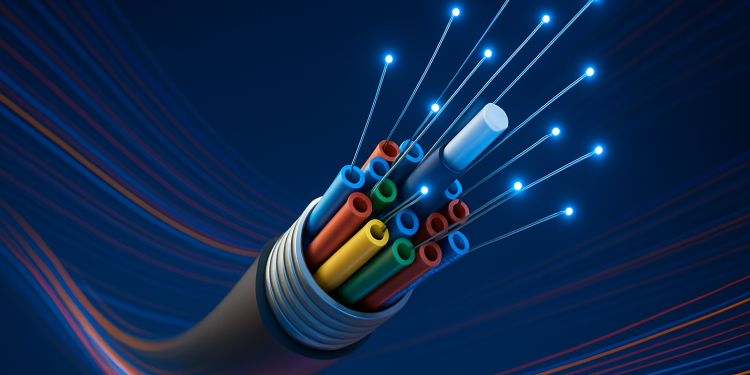Imagine an internet speed that’s over three and a half million times faster than the average US connection. That’s exactly what a team of Japanese researchers from the Photonic Network Laboratory at the National Institute of Information and Communication Technology (NICT) has just tested. They’ve managed to transmit data at a staggering 1,020,000,000 Mbps over a fiber optic line stretching 1,123 miles. Yes, you read that right: a petabit-class internet transmission spanning over a thousand kilometers.
Now, before your brain melts trying to wrap around those numbers, here’s the gist: this new fiber optic cable design packs 19 cores into a cable the same thickness as the ones we use today. The trick isn’t just the cable, though. The researchers used specialized equipment, including an optical amplification system combined with signal combiners and splitters, which looped the signal 21 times to cover the considerable distance.
At the receiving end, a 19-channel receiver with a digital signal processor cleaned up the signal, reducing interference between cores and verifying the speed. They didn’t actually send real data in this test, focusing instead on signal quality and speed calculations. Honestly, that’s the part where I kind of zoned out, but the takeaway is that this is a world record for standard-diameter optical fibers, measured at 1.86 exabits per second per kilometer.
NICT teamed up with Sumitomo Electric Industries, which designed the 19-core fiber cable. This isn’t their first rodeo either. Last year, NICT hit 402,000,000 Mbps over a standard optical cable, which was already great. This new breakthrough nearly triples that speed!
Why does this matter? The world’s internet usage continues to grow rapidly. The United Nations’ ITU says 68% of people globally were online in 2024, up from 53% in 2019. With 4K streaming becoming increasingly common, the proliferation of massive data centers, and population growth, we will soon need much faster internet. I mean, my current 350 Mbps line feels speedy enough, but with game downloads getting absolutely huge, I’m definitely going to want something this fast sooner rather than later.
Could this technology eventually make its way into everyday homes? That’s the million-dollar question. Specialized gear is still required, as this is an early-stage testing phase. However, the fact that the cable’s thickness matches current standards suggests it might not be impossible to upgrade existing infrastructure in the future. Wow, who would’ve thought internet speeds could get this wild?
What do you think? Would you want internet this fast at home, or is your current connection doing just fine? Drop your thoughts below—I’m curious if anyone else’s brain just exploded like mine did.
























